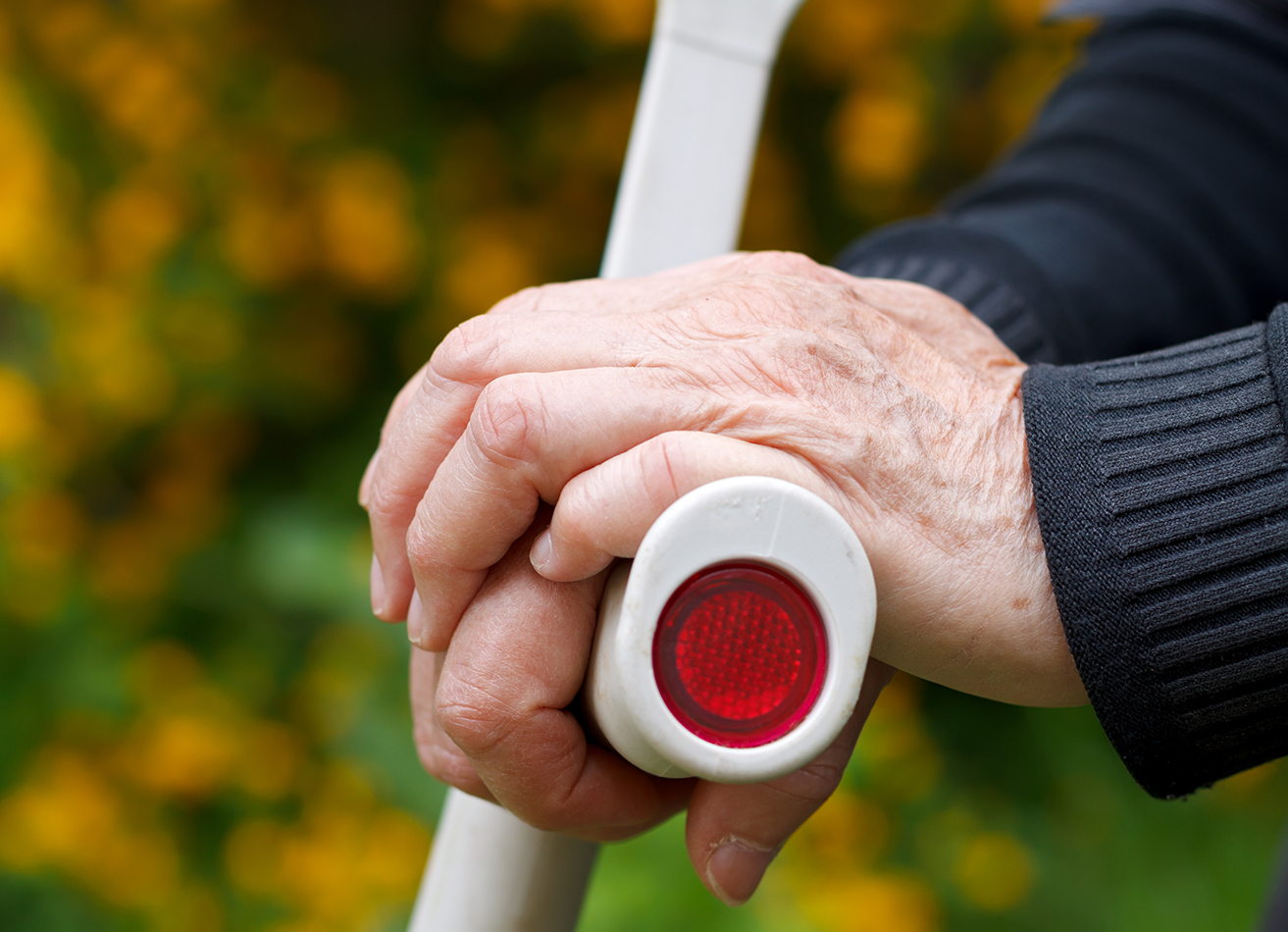
“My father was a great joker and now he is always absent”
A member of the family of an 82-year-old patient with mixed dementia who suffered a stroke explains to “Compartir” how those around him realised that he had the disease and how they are fighting it between them all.
“My father was 82 years old and we thought that it was all due to his age.” A year and a half ago, A.G. became aware, as did the entire family, that her father was becoming lost. After over 40 years living in Alicante, her parents moved to live in the mountains and “suddenly, when he returned to the city, my father did not know how to go to places he knew well.” On the other hand, she recalls that even then, he asked the same questions constantly. Al these problems started becoming more recurrent and in spite of the fact that they could all be attributed to his advancing age, A.G.’s mother began to suspect some else was happening. “She explained to us three children that Papa did not remember how to do very basic things such as, for example, tie his shoe laces,” she recalls.
At this point he suffered a stroke. “As it was detected in time, he made a swift recovery and could walk and talk again very quickly, although he had many more gaps than before, she explains. It was the beginning of the summer of 2021 and after many medical tests, they visited Doctor Elena Elvira, the neurologist at HLA Vistahermosa in Alicante. Yes, there were some clear consequences from the stroke, but there was also dementia. Doctor Elvira affirms that a minimum time is needed to individualise the patient’s disease. “A correct diagnosis must be made and a therapy and monitoring of the disease must be carried out, contemplating the specific needs of the patient and their family at the same time, to adapt to them.” This was the moment of the diagnosis: a mixed dementia (vascular and degenerative). It was October of the same year. They carried out many tests on him – such as a cranial CAT scan or ultrasound scans – and above all, A.G. remembers some tests used to diagnose mental diseases and dementias which “were a disaster”. At a general neurology consultation, Elvira indicates, it is possible to carry out the diagnosis of a vascular dementia “with the data provided by the patient and their family, a physical examination, cognitive tests and neuroimaging tests.” At this moment, the family realised that, prior to the stroke, it was likely that their father had already been ill.
Easy words are harder for him than difficult ones
Currently, A.G.’s father has no short term memory, he asks the same thing every five minutes and is always very quiet. “My father was very talkative and a joker and now he is absent most of the time,” she says. Of course, he has always been passionate about reading and writing, and this continues. “He reads every day and he is writing his memoirs… and there is no better exercise than this,” his daughter adds. In spite of this, his mind has been eliminating memories, he has even forgotten that he had a brother who has already passed on. “It is tough and above all, very sad,” she affirms, although at home we have a very clear philosophy of life: “there is only one way to get through the difficult times: with humour and all of us laughing at everything.” Her father gets very angry because, at times, he finds it difficult to express what he wants to say. And it is curious, “easy words are harder for him than difficult ones.” Although he is aware of his situation and at times, his daughter sees how he becomes resigned to this new situation. “He has always been very vain. Recently I gave him a walking stick and I thought he was going to throw it at me. The truth is that now he does not go out without it. It is his insurance policy,” she explains.
Once the disease occurs, it is essential to control the risk factors to prevent it from progressing, as far as possible
Luckily, he can live with his wife, who looks after him and takes charge of his condition. Her daughter defines here as a practical woman. In fact, they call her “the iron lieutenant” and although the situation is complicated, she was always clear that they needed to discover what was happening in order to be able to find a solution, “And if there wasn’t one, to make it as bearable as possible.” And the fact is that currently there is no definitive cure for dementia. He takes several medicines a day because he suffers from high blood pressure and cholesterol, which are two of the most important risk facts for suffering a cardiovascular accident such as a stroke. Therefore, it is vital to control them. “Once the disease occurs, strict control over these risk factors is essential to avoid its progression as far as possible,” the neurologist treating him states.
On the other hand, “at home, we carry out early stimulation, we force him to activate his mind with exercises, reading or practising language,” she explains. Many of the pathologies treated at the Neurology Unit that Doctor Elvira belongs to benefit from “carrying out daily physical exercise, rehabilitation or simply carrying out leisure activities.” In the case of A.G.’s father, his mixed dementia is not at a very serious stage and he continues to be independent at home, although “when we banned him from driving, it was like taking away his freedom”. A.G. has learned a lesson with all these experiences: getting older is very hard, “and more so if you don’t have a strong family support to guide you.” She believes that, although the family members are not doctors, “our company calms them down a great deal.”





